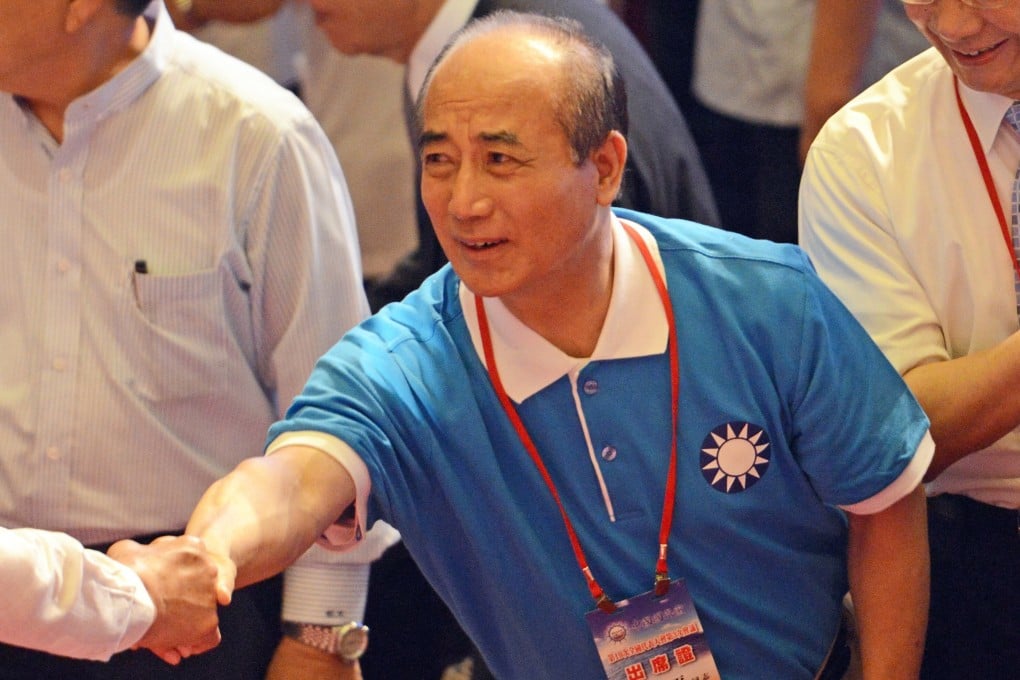Taiwan opposition delegates headed for China forum risk charges of spying and collusion with mainland
- Island government sees cross-strait forum as a ploy to persuade Taiwanese of the need for reunification talks
- Kuomintang says delegation is needed to convey cross-strait concerns of Taiwanese people to the mainland

The former speaker of Taiwan’s legislature Wang Jin-pyng will lead a delegation to attend an annual cross-strait forum, challenging a ban imposed by the island’s government on the event, which it sees as a united-front ploy aimed at wooing Taiwanese.
In a statement released by the main opposition Kuomintang on Tuesday, the party said KMT chairman Johnny Chiang had appointed Wang as head of the delegation and KMT secretary general Lee Chien-lung would serve as deputy head of the group.
The KMT said it was necessary for the party to send an influential and experienced person such as Wang to convey the concerns of Taiwanese people about the cross-strait situation.
“Since the Democratic Progressive Party took power in 2016, cross-strait relations have turned sour every day and in the past half-year … the two sides have become more and more hostile to each other … and any misunderstanding or misjudgment could spark a war,” the KMT said.
With the People’s Liberation Army and US forces increasing their activities near the Taiwan Strait, cross-strait tensions have escalated further, the party said, adding that such tensions put Taiwan and its people at risk.